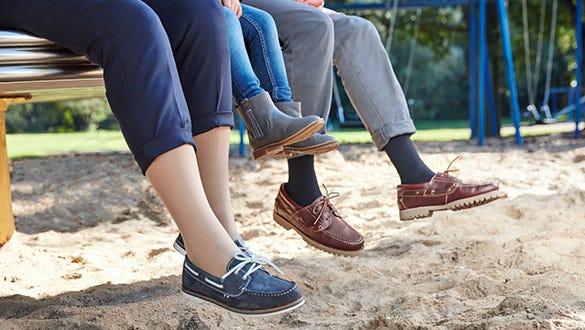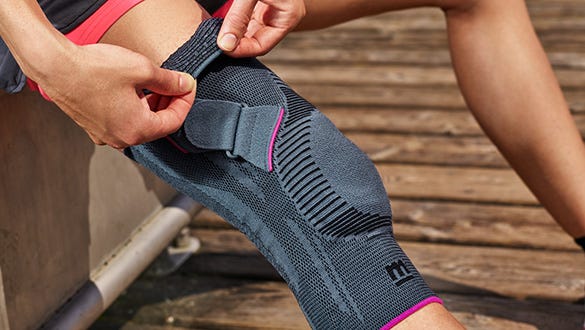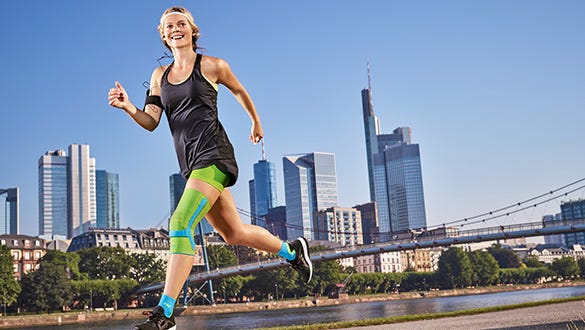- Free First Class Delivery
- Buyer Protection
- Secure Online Shopping
- Healthcare Professional? Click here
Active holidays
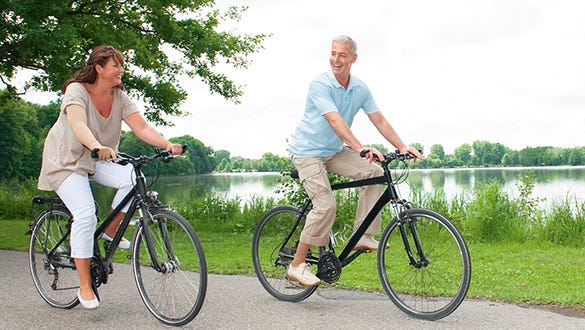

Categories
Moving times
Do I need to bring any special equipment? Will I be fit enough to partake? What are the risks if any?
We all want to life a more active life. We all start with good intentions such as learning to surf, go for regular runs or practice yoga. These good intentions however often fade into the background in our everyday busy lives. Work and family life don't leave us much time for our fitness goals.
That only leaves us having the spare time for fitness on holiday. Those in need of an active break can hike, cycle, go snorkelling, play golf or even risk a parachute jump. Your travel agent will have the answer to almost every sporting adventure.
Cycling
Bike tours are particularly popular with the active holidaymaker. The tours can be adventurous and strenuous on trips over mountains and through valleys, across deserts or through ice and snow. You can effectively avoid common problems with saddle discomfort as well as back and neck pain by positioning the handlebars and the saddle correctly.
Boost your immune system beforehand so you don't catch a cold: a perspiring body can be cooled down too much and too quickly by the airflow. Having the correct functional and breathable gear is very important.
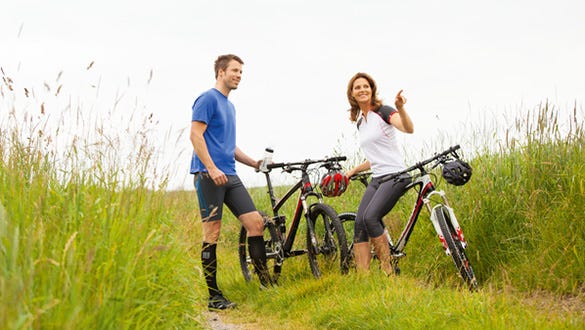

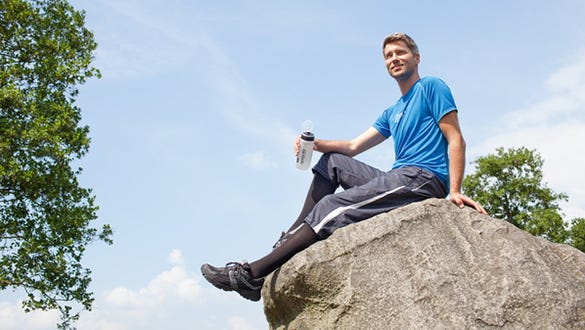

Mountain trekking
Extreme temperature differences and higher than normal altitudes come hand in hand with mountain trekking. These are the greatest challenges when mountaineering and mountain trekking. To stop the body overheating or cooling down too much, you should wear functional clothing based on the multilayer principle.
Layer up with a light breathable T-shirt, a fleece and a weatherproof jacket, one over the other. A slow ascent is the best protection against altitude sickness. Once you reach above 2,500 metres, do not climb more than 500 metres in altitude a day. Furthermore: go back down a little to sleep and don't stay at high altitudes for too long.
Water sports
Splashing around, snorkelling and swimming are among the most popular seaside holiday pastimes. How can you not take a dip when the hotel pool and blue seas are tempting you? But here too there are health risks that are simple to avoid. If possible avoid swallowing any water. It might contain harmful germs, particularly in hotel pools.
Wear bathing shoes to protect against injuries and fungal infections. Don't jump into cold water if you're too hot and don't forget water-resistant sun screen, especially when you're snorkelling. The sun’s harmful rays can penetrate the water to a depth of about one metre.
New sports
Before you start learning a new sport on holiday, you should check with a doctor whether you are physically fit enough for it. It is also advisable to start training a few weeks before your holiday starts so that your muscles are physically prepared for the new sport.
Book a place on a beginners' course under the supervision of an experienced trainer and make sure that that you alternate between active and resting phases often and regularly – don’t overdo it and listen to your body! Also find out about the safety rules.
Pack your soft supports and compression garments
The whole point of an active holiday is to arrive at your destination safe and healthy and to return home safely and preferably healthier and fitter. If you’re travelling on a journey for more than 3 hours, you should take precautions to prevent traveller's thrombosis. You should also protect yourself against injury while on active holidays. There are effective orthopaedic medical devices such as soft supports (for sports) and compression garments (for travelling) for this. You can buy medi’s clinically proven travel socks from our web shop (www.mediuk.co.uk/shop) or from our Customer Services department. With their controlled compression, they activate the muscle pump and thus stimulate the blood circulation.
If you already have an injury, you should bring a support with you on holiday. This can help support the injury and joint conditions and give you more confidence and stability. Knee supports, for example Genumedi, can provide support for mild instability of the knee joint, joint effusion and swelling, irritative conditions, osteoarthritis, arthritis and meniscus injuries. Be on the safe side, ask your clinician or doctor for advice. If you are properly equipped, you can actively explore your holiday destination and do something for your health at the same time.

